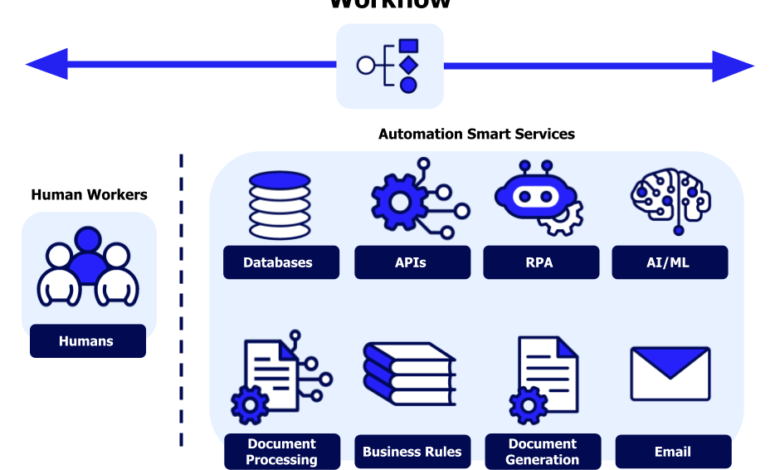What is AI-Driven Workflow Automation?

In very simple terms, AI-driven workflow automation can be defined as the use of computer technology in handling, improving and carrying out actions in a workflow. It allows workflow analysis, outcome forecasting, and carrying out predictable activities allowing human capital to engage in more interesting activities. AI slowly penetrates enterprises in the aspects that matter the most: from customer service representatives to report creation.
Key Benefits
Increased Efficiency: With the help of automation, when all boring tasks are taken on by computers, the employee has more free time to perform high-value work as less of his time is wasted on low-value tasks.
Enhanced Accuracy: AI systems are able to handle huge sums of data and with very few errors which improves the reliability of the outputs as well.
Improved Decision-Making: Given the analytical abilities of AI, companies are able to draw useful information from data patterns which facilitates appropriate decision making improving utilization of available resources.
Cost Savings: With smooth processes in organizations, there is decreased use of manual labour hence operating costs are decreased.
Scalability: As companies expand, AI-based workflows do not have to take additional costs as they can comfortably grow in scale without additional expenditure of resources.
Read Also: Why Your Business Needs Privileged Access Management Solutions: Key Benefits and Best Practices
Real-World Applications
Customer Service: Guided by a context, such chatbots can take questions, directly respond to clients concerns, or even improve through the interactions over time.
Finance and Accounting: Automatic billing
Conclusion
In conclusion, AI-Driven Workflow Automation leverages advanced technologies to streamline business operations, improve efficiency, and reduce manual intervention. By automating repetitive tasks and enabling data-driven decision-making, AI enhances productivity and scalability across industries. However, its implementation requires careful consideration of challenges such as costs, potential job displacement, and ethical concerns around data privacy. When used strategically, AI-driven automation can offer substantial benefits, but it must be approached with a balance of innovation and responsibility.




